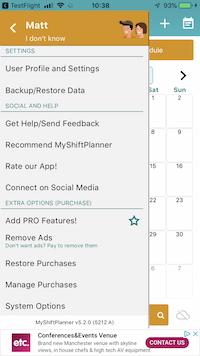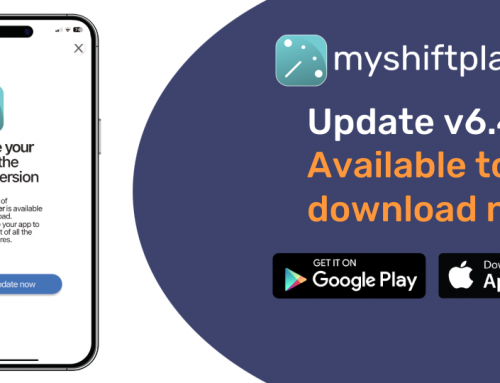It might be a line from comedy, but turning your phone off and on again really does solve a lot of problems. We asked our lead developer, Chris, why a phone reboot can solve app bugs and phone issues, and when you should try it?
The Advantage of a Reboot
Our smartphones are the touchstones of life. They help us manage our time and interact with friends and family. They are now the most common way we access important information, such as our banking, communication with friends or our diaries and work schedules.
But, like lots of everyday items, we can often take our phones for granted. Simple care tips, such as regularly shutting the phone down and rebooting it, can have a huge effect on how well it continues to perform and how quickly it overcomes bugs and crashes.
What causes phones and apps to run slowly?
It’s all about the RAM! As you use mobile apps on your phone they fill up the memory or RAM. The more apps you open, the more RAM is used up.
The problems come when you close your apps down.
In nearly all cases, even if you close an app, or manually remove it from memory, the app doesn’t completely shut off. Plenty of apps don’t shut down, but instead put themselves into a “sleep” state, where it can be restarted quickly should the be required again.
This means that remnants of apps hang around in the system, clogging up RAM and leaving less room for new apps to load up.
The operating system (OS) of your phone knows this and makes efforts to cope. It tries to move things around in the memory to make room for new apps to be loaded.
But it’s here that things may start to slow down a little bit. Not only does the operating system have to load the app, but it also has to do the shuffling around in RAM to make room. This slowly eats memory and battery power on the phone. If you think about all those times you’ve thought that your phone drained entirely too fast in a day, it was probably when you’ve had lots of apps open. Or when you’ve been using, video streaming apps, such as YouTube or Netflix, or apps that frequently pull data down from cloud servers, such as email or Facebook.
These apps not only sap battery, they also use up lots of RAM. Restarting the phone clears out apps and memory leaks, and gets rid of anything draining your battery.
What About Crashes?
Crashing happens for various reasons, but a regular reboot of your phone can definitely help with these as well. Every update, page loaded, and app installed or deleted will add and remove code in the operating system of your phone.
Sometimes these remnants of code are incompatible or improperly removed after installation or uninstallation. Restarting your phone will clear them out. It will remove most of the issues and can get your phone working better again.
What effect will rebooting have?
Some operating systems are better at managing memory than others. So you won’t always notice a massive performance improvement once you restart. But, quite often, you’ll see apps load and launch quicker and you will be able to switch between running apps quicker as well.
Rebooting also fixes other common app issues, such as hangs, crashes and syncing problems. That’s why we often ask users who are experiencing problems with My Shift Planner to start off by turning their device off and rebooting it.
If you’re having issues with any app, a phone restart may provide the fix solution.
How often should you reboot your phone?
The basic advice is to reboot your phone at least once a week. This will help retain memory, prevent crashes, make the phone run more smoothly, and prolong your battery life.
Of course, restarting isn’t a fix-all solution. If a problem persists after a reboot, there’s clearly a bigger issue that needs further research or help.
Got a problem with My Shift Planner?

When it comes to issues with My Shift Planner, our advice is to reboot the phone first.
If the issue persists, contact our support team.
Either through the app’s Get Help/Send Feedback option.
Or by contacting us via email at support@myshiftplanner.com
It may be that there is a problem with the app that we can help with, or it might be an issue within the phone. Whatever the cause, we can usually point you in the right direction to get the issue sorted.






